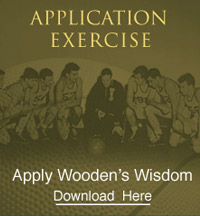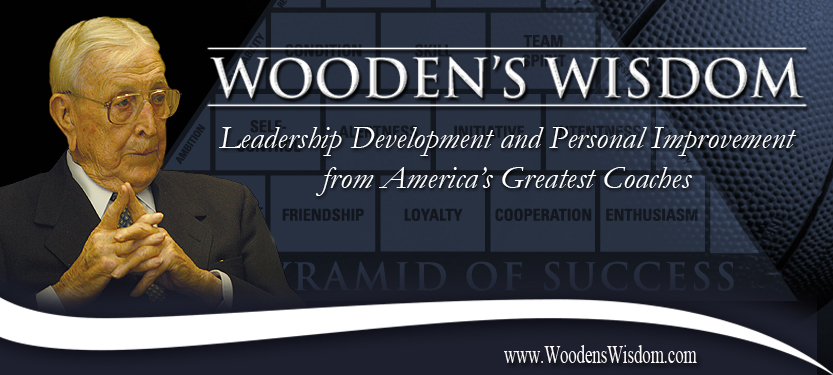|
"STORYTELLING" (BOOKER T. WASHINGTON AND JOHN WOODEN)
Here are some ideas for "dos and don’ts" of effective story telling.
- Don’t interrupt somebody else’s story to tell your story. As Coach Wooden liked to say: "Listen if you want to be heard."
- Don’t tell a story after somebody else’s story because you’re trying tell a story that’s more impressive than theirs. If somebody tells you a story about their weekend vacation in New York don’t follow it up with a story about your three-week vacation in Europe. We call this being a SMEOE (Subject Matter Expert on Everything).
- Make sure the audience is interested in the topic of your story or that they have a clear understanding of why you’re telling the story.
- Keep your story on topic, going off on tangents may cause the listener to wish you would "just get to the point".
- Great story tellers have clarity and conciseness. In his 1902 book, "Character Building", Booker T. Washington describes how to communicate clearly:
"If you can use a word with one syllable that will express your meaning, use it in preference to one of two syllables. If you cannot get a suitable word of one syllable, try to get one of two syllables instead of three or four."
- Don’t tell stories about past successes where you are the hero. If you have a story about a past success, put the emphasis on what other people contributed to the effort.
I never heard John Wooden tell a story about something great that he did. His stories were usually about a mistake that he made, a situation where he could have done something better or about something great somebody else did.
What are your stories about?
Yours in Coaching,
Craig Impelman
|


COACH'S FAVORITE POETRY AND PROSE
The Test
You can brag about the famous men you know;
You may boast about the great men you have met,
Parsons, eloquent and wise; stars in histrionic skies;
Millionaires and navy admirals, and yet
Fame and power and wealth and glory vanish fast;
They are lusters that were never made to stick,
And the friends worth-while and true, are the happy smiling few
Who come to call upon you when you're sick.
You may think it very fine to know the great;
You may glory in some leader's words of praise;
You may tell with eyes aglow of the public men you know,
But the true friends seldom travel glory's ways,
And the day you're lying ill, lonely, pale and keeping still,
With a fevered pulse, that's beating double quick,
Then it is you must depend on the old-familiar friend
To come to call upon you when you're sick.
It is pleasing to receive a great man's nod,
And it's good to know the big men of the land,
But the test of friendship true, isn't merely: 'Howdy-do?'
And a willingness to shake you by the hand.
If you want to know the friends who love you best,
And the faithful from the doubtful you would pick,
It is not a mighty task; of yourself you've but to ask:
'Does he come to call upon me when I'm sick?'
Edgar Albert Guest (1881-1959)
|
